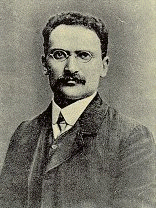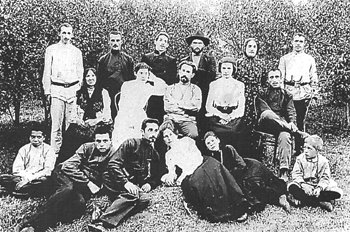
Marxism-Zionism seems an odd synthesis but Borochov's theories anticipate later National Liberation Marxist theories. Many Russian members of Left Poale Zion joined the Bolshevik Party after 1917 and played a prominent part in the Communist Party's "Jewish Section" influencing policies favouring "agrarianising" Jews through the construction of agricultural settlements in Crimea and Ukraine and later with the development of a "Jewish Republic" in Biro-Bidzhan. The Jewish Section was dissolved in the 1930s and many ex-Poale Zionists who joined the Communist Party suffered in Stalin's purges.
Below, you'll see a link to Borochov's seminal essay "The National Question and the Class Struggle." The essay aims to be a broad Marxist analysis of the "National Question" without making specific reference to the Jewish Question or to Zionism and thus it still makes an interesting read and a relevant contribution to the debate on nationalism and Marxism by identifying "progressive" vs "reactionary" nationalism, and defining "proletarian nationalism" against bourgeois varieties. It also seeks to explain why sections of the working class sometimes indulge in reactionary nationalism, the importance of solving the national question as part of the class struggle, and analyses the importance of immigration and its relation to the National Question. While, elsewhere, Borochov argues for territorial concentration (specifically Zionism) as the solution to the "Jewish Question" the arguments and analysis posited in "The National Question and the Class Struggle" do not necessarily lead to that conclusion.
Ber Borochov's major works:

Ber Borochov (with hat), the future leader of Poale Zion, with friends in his hometown Poltava, Ukraine, in 1903. Standing on the left is Yitzhak Ben Zvi, who became the second president of Israel.